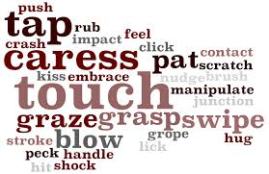prosourcevn
New Member
Tuyệt chiêu giúp bạn cải thiện vốn từ vựng Tiếng Anh nhanh chóng!
You must be registered for see links
Từ vựng hết sức quan trọng vì nó đống vai trò truyền tải quan điểm, tư tưởng của bạn. Càng sở hữu được vốn từ vựng phong phú bạn sẽ càng dễ dàng trong giao tiếp, thể hiện ý tưởng và diễn đạt lưu loát hơn. Dưới đây là mười tuyệt chiêu giúp bạn học từ vựng có hiệu quả nhanh nhất.
Học từ vựng là một sự đầu tư về thời gian và công sức mang lại niềm vui thích và lợi ích thiết thực. Ít nhất mỗi ngày dành ra 15 phút tập trung vào học từ vựng có thể cải thiện nhanh chóng vốn từ vựng của bạn. Nhờ đó bạn có thể tăng khả năng giao tiếp, viết luận và diễn thuyết. Sở hữu vốn từ vựng phong phú sẽ giúp ích cho bạn rất nhiều trong học tập, công việc cũng như ngoài xã hội. Nó giúp bạn hiểu được ý tưởng của người khác và cũng như việc người khác có thể hiểu được suy nghĩ và ý tưởng của bạn hơn.
Tất nhiên bạn đã biết hàng ngàn từ, và bạn vẫn tiếp tục học thêm nữa mặc dù là bạn có dùng đến hay không. Sự thật là, rất nhiều từ vựng mà bạn biết là do tình cờ thấy chúng trong khi đọc sách, trong giao tiếp hay trong lúc xem ti vi. Nhưng để tăng hiệu quả, thì bạn cần có một hướng tiếp cận phù hợp và tận tâm với nó. Nếu 1 ngày bạn chỉ học 1 từ mới thì sau 3 năm bạn sẽ có hơn 1 nghìn từ mới trong vốn từ vựng của mình. Tuy nhiên, nếu bạn quyết tâm học 10 từ 1 ngày, thì chỉ trong vòng 1 năm bạn đã bổ sung thêm được hơn 3000 từ, và có thể đã hình thành được một thói quen tự học và tự cải thiện chính mình.
You must be registered for see links
Đối với những người bắt đầu học ngoại ngữ, từ vựng là một vấn đề rất “khó chịu”. Nhiều học viên thắc mắc rằng tại sao họ không thể nhớ được các từ vừa học mặc dù đã viết đi viết lại nhiều lần.
Dưới đây là 10 mẹo nhỏ giúp bạn học từ vựng tốt hơn:
1- Hãy học những từ có liên quan đến nhau.
Nếu đang học từ miêu tả miền quê, thí dụ như valley (thung lũng), stream (dòng suối), meadow (đồng cỏ) thì đừng lẫn với các từ miêu tả các thứ ở thành phố (ví dụ như fire hydrant – vòi nước chữa cháy), hay những từ miêu tả tính cách. Những từ liên quan với nhau thường cùng xuất hiện và sẽ dễ hơn khi nhớ chúng chung với nhau.
2- Học từ vựng trong những lĩnh vực mà bạn yêu thích.
Nếu quan tâm về nghệ thuật hay bóng đá, hãy đọc về những đề tài này. Có lẽ trong tiếng mẹ đẻ bạn biết rất nhiều từ miêu tả một bức tranh, một trận đá bóng nhưng bạn lại không biết trong tiếng Anh chúng gọi là gì – hãy tìm thử xem! Hãy nhớ rằng những gì bạn thích là những điều bạn muốn nói về và là một phần của con người bạn – nếu không biết cách diễn đạt chúng, việc này có thể làm bạn e sợ đấy.
3- Hãy có một cuốn từ điển hình ảnh.
Nó sẽ giúp bạn nhớ từ mới dễ dàng hơn thông qua việc nhìn tranh của chúng.
You must be registered for see links
4- Sử dụng video.
Lần tới khi xem một bộ phim bạn hãy ghi lại bằng tiếng mẹ đẻ 5 hay 10 đồ vật bạn nhìn thấy nhưng lại không biết từ tiếng Anh của chúng là gì. Tra những từ này trong từ điển, rồi xem lại bộ phim, luyện tập cách sử dụng chúng. Một lần nữa chúng ta lại thấy rằng nhớ một cái gì đó thật dễ dàng nếu ta nhìn thấy hình ảnh của nó.
You must be registered for see links



